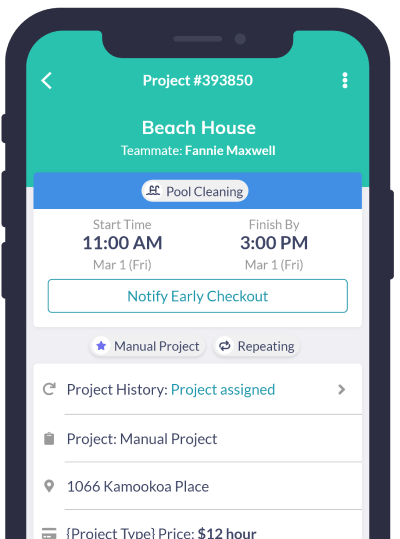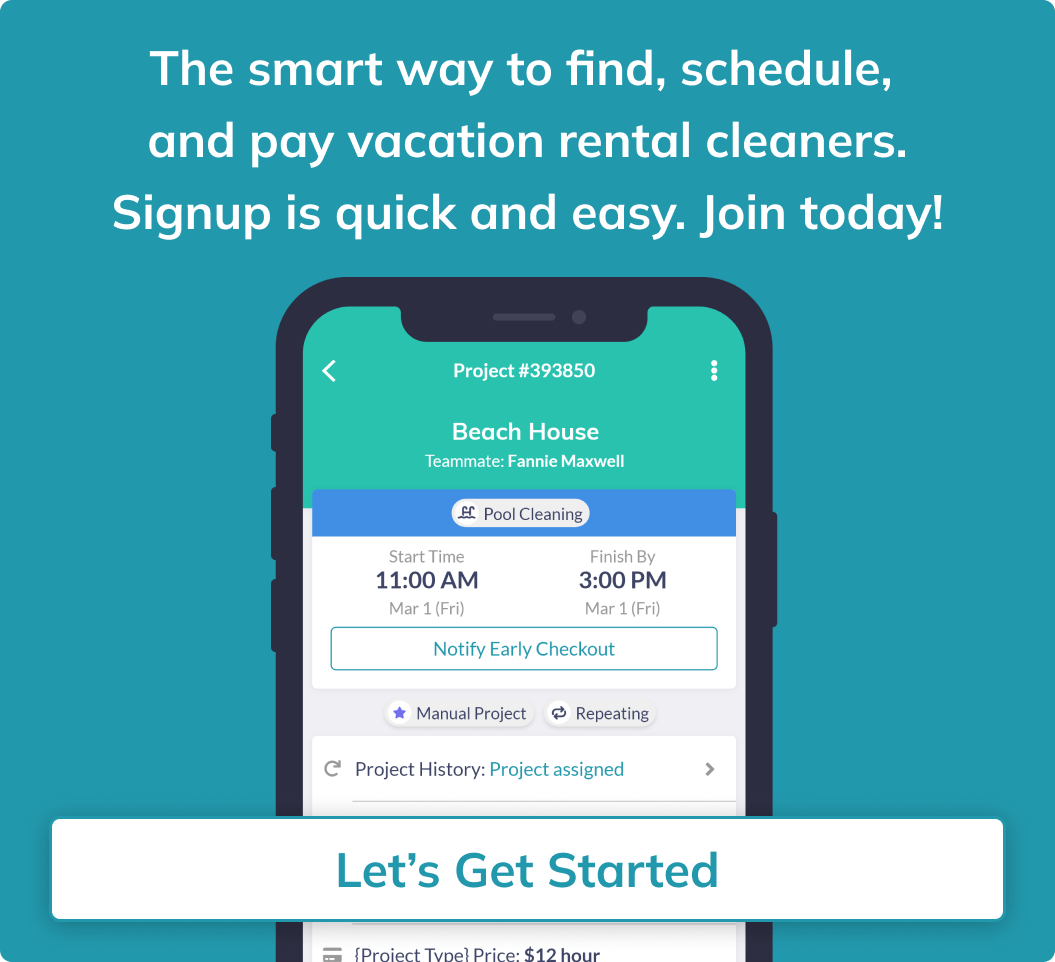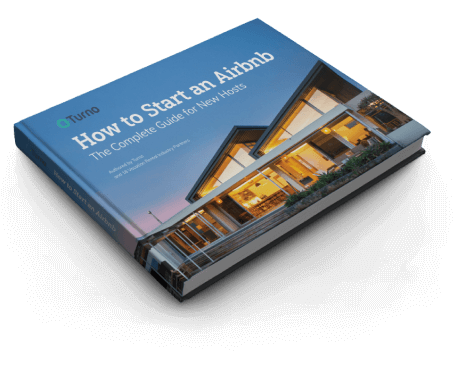What Is Guest Screening?
Guest screening is the process of assessing the risk posed by each potential guest through legal, non-discriminatory, and detailed checks.
This may involve asking guests to submit personal information, such as their name, date of birth, home address, and a copy of their official ID, as well as their mobile phone number and email address.
How Does Guest Screening Work?
With artificial intelligence (AI) and machine learning technology, the information provided by the guest will be processed and scanned in the background, extracting key information.
The purpose of this process is to determine whether the ID is stolen, fake, or genuine; it’s also meant to verify that the personal details provided match those on and associated with the ID.
The phone number and email address of the guest are then reviewed to see if the name provided for the booking matches the registered owner. Screening tools will also look at when the email account was created. This is to check that the account wasn’t created just for the booking.
After providing an ID, guests will be asked to perform a biometric or liveness check, usually in the form of taking a selfie or short video. To help reduce fraudulent chargebacks and protect against lost revenue and bookings, hosts may choose a screening provider that also verifies credit and debit card information.
Others may prefer to use a service that also does background checks, which can include checking criminal databases and terrorism watchlists.
Why Do Hosts Need Guest Screening?
By investing in an effective screening process,hosts will save money in the long run by minimizing incidents of damage and reducing insurance claims. Picture this scene:
You’re a new host and have decided to rent out your own home while you’re away on vacation. You’re having an incredible time with your friends and family. But, while you’re enjoying yourself, your phone starts ringing. You ignore it — you’re on vacation after all.
However, your phone doesn’t stop ringing. You check the caller and see that it’s your next-door neighbor. She sounds angry and you can hear the sound of loud, thudding music and police sirens whirring in the background.
Turns out, the guest who booked your place decided to throw a party, and dozens of people showed up. The worst part? They used a fake ID and a stolen credit card to book your property.

This scenario could have been completely avoided through intelligent guest screening. Guest screening is one of the best ways to spot red flags and protect you and your vacation home from the risks that come with online booking requests. It actively prevents problems from occurring, rather than just being on hand to sweep up after the damage has already been done.
1 in 20 guests admits they treat a vacation rental with less respect than their own home. On top of that, the average cost of property damage by guests is around $1,296. For these reasons, making sure you host only the most respectful guests should be at the top of your priority list.
Guide to Guest Screening: 10 Easy Tips
Learn 10 simple tips to help prevent troublesome guests from booking and stepping foot inside your property.
1. Know Your Guests
To guarantee your hosting experience is a positive one, make sure you know as much as possible about your guests.
Ask guests to clarify whether any additional guests will be joining them during their stay. If there are, collect all the details of these additional guests, such as names, email addresses, and phone numbers. Having these details will help in case of damage to your rental.
2. Do Your Research
Once you have their name and phone number, do a quick Google search. Check on social media platforms to see if they live locally or whether what they post online is a cause for concern for you.

3. Ask for ID
By asking for a guest’s ID, you can host in confidence knowing exactly who you’re renting to. Guests that are deterred and unwilling to provide their ID are often the ones that cause damage and problems for hosts.
Having a copy of the guest’s ID also helps if the guest performs any criminal acts on your property, such as theft, and you have to report them to the police.
4. Validate Payments
Vacation rentals are unfortunately a target for credit card fraud.
To make sure that cards are not stolen or fake, and guarantee that payments are made to you, make sure that guests pay 100% of the booking fee and any other payments you request upfront. That way they are processed immediately and you will know in advance if there are any problems, such as chargebacks.
5. Collect a Deposit
We all know that accidents happen, so protecting yourself is crucial.
In addition to validating guests’ credit cards, collecting a security deposit will also help you if you need to make a claim. By holding the deposit for 7 days after a guest’s stay, you can inspect the property and charge the guest if they have broken or stolen anything. There are automated, streamlined deposit solutions on the market to make this process easier.
6. Have a Rental Agreement
Have every one of your guests sign a rental agreement committing to your house rules and the standards that you expect of them when staying at your property.
By having a legally binding agreement, guests can be held accountable for their actions and will make processes — such as insurance claims or keeping the deposit amount — much easier for you as a host.
7. Know Your Area
Keep yourself aware and up to date on big events that might be happening in the surrounding area.
If you live in an area that hosts a well-known festival or is known as a place to party, be wary of one-night bookings and guests who live locally. These are often party bookings and should be avoided at all costs.
8. Monitor the Stay
By installing noise monitoring sensors, you can rest easy knowing that guests are treating your property — and your neighbors — with respect.
Make sure you let potential guests know that you use these products and be understanding when it comes to noise spikes. You can set your levels, and if guests reach those levels for a sustained period of time, you can step in and contact them to resolve and reduce the noise issue.
9. Keep All Payments on the Platform
If you are using a major home-sharing OTA, then keep all communications and payments on the site. If a guest tries to get you to accept payment outside of the platform or move communications, report them to the platform and decline the booking, as these are often scams.
10. Note Their Reviews
If you do use a major OTA, make sure you have a look at the guest’s reviews — both the reviews that hosts have left them and the reviews they have left hosts.
It’s always good to hear both sides of the story. But if you see they are unfairly critical of places they have stayed, then these are the guests you likely want to avoid.
Why You Should Use a Guest Screening Provider
There are many benefits hosts can enjoy by using a dedicated guest screening provider, including:
Increased Guest Accountability
By collecting guests’ details, if something does go wrong, you’ll have the appropriate information to get issues resolved quickly.
Deter Party Bookings and Fraudsters
Requiring guests to verify and provide their details is a major deterrent for those looking to take advantage of your property.

Add an Extra Layer of Protection
Prevent damage and problems from occurring in the first place by deterring risky guests from booking your properties.
Automate Previously Manual Processes
Gone are the days of having to manually review a copy of a guest’s passport. AI-powered systems can automatically read and verify IDs.
Give Yourself Confidence
By knowing that the person who has booked your home is exactly who they say they are each time, you’ll have that extra peace of mind that your home is safe and in good hands.
FAQs: Guest Screening Process for Airbnb Hosts
Will using a guest screening tool put guests off from booking?
Hopefully the bad ones, yes!
For anyone coming to your property without an ulterior motive, there is no reason for them to be put off by the verification process.
A quick Google search of industries using verification as standard will show financial services, health care, education, sharing economy, retail, gaming, and more. You’ll also see that the travel and hospitality industries have been doing it for years already: hotel check-in, airport security, and boarding a plane to name a few.
While there is more work needed to standardize guest screening in the short-term rental space, it is not a process that guests are unfamiliar with or should fear — unless they’re up to no good of course, in which case, you don’t want those guests to book with you anyway.
Does guest screening stop chargebacks?
While chargebacks are never 100% preventable, guest screening processes will help minimize them.
Is the guest’s data safe?
Yes; you are not in violation of any data compliances by screening your guests. It is a long-established practice in some industries (i.e., hotels) and is becoming a common practice in many more, including our beloved vacation rental industry.
If Airbnb already screens guests, why should I use a third-party service to do it too?
Airbnb, along with some other OTAs, may perform an identity check. However, ID verification is not part of their standard sign-up process for guests, and some OTAs don’t ever do it. Airbnb does offer background checks, but they’re not always available worldwide and depend on a lot of outside factors.
Remember: Airbnb’s (as well as other OTA’s) principal business is bookings, and their principle client is the guest. Third-party services offering guest screening and/or damage protection focus on the host as the principal client.
Guest screening providers work with you to make the screening process, resolutions, and claims process faster, easier, and more lucrative.
Can I use a guest screening and protection service through my PMS?
Yes. For example, SUPERHOG integrates with many property management software and is always adding more partners based on demand.
I already pay for a lot of services for my business. Isn’t this just another expense?
There are numerous costs associated with running your business successfully, which is why it’s essential to create the right tech stack. Guest screening and protection should always form part of your business tech stack. And don’t forget: The question should be reframed from “can I afford to?” to “can I afford not to?”.
Screen Airbnb Guests, Protect Your Vacation Rental
For liability, it is important to know as much as you can about the customers entering and leaving your property. A lot of time and money has already been poured into your vacation rental business, and losing anything due to a poor guest screening is not optimal.








